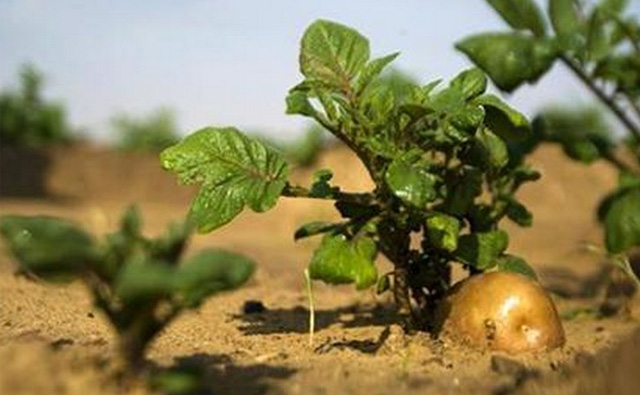Industry News
Chinese firm to pay $90 million for Israeli biopesticide maker

Industry News

Israel’s Stockton Group, a world leader in the biopesticide business, is being acquired by China’s Hebang Group.
The Chinese firm will pay $90 million for 51% of Stockton’s shares. Hebang’s goal with this investment is to “support Stockton’s growth as a global leader in environmentally friendly biofungicides,” according to the Chinese firm.
Biopesticides are treatments to kill bugs, but in a biologically “sensitive” manner, limiting the use of chemicals. There are various technologies to produce biopesticides, such as using plant extracts to develop organic chemicals that can be applied to plants and crops, along with microbial biopesticides based on using bacteria, fungi and yeast extracted from plants.
However, the field is relatively new, and as of now there are no biopesticides strong enough to handle the entire growth cycle — meaning that, currently, biopesticides are used as an adjunct, not a replacement, for chemical pesticide treatments. However, according to Ziv Tirosh of the Stockton Group, every little bit helps.
“If, for example, a cucumber crop is to be sprayed 10 times, we could replace two or three of those chemical pesticide sprayings with biopesticide sprayings, which will have a major impact on the final results,” he explained.
With that, Stockton has developed one of the world’s best-selling biofungicides. Timorex Gold is successfully sold in nearly 20 countries to treat a large number of crops, such as rice, coffee, grapes, tomatoes, bananas, and a variety of other fruits and vegetables.
The Stockton Group is one of those huge Israeli success stories few outside their industry have ever heard of. The company, which produces chemical pesticides and growth aids for agriculture, has over the past decade become a leader in the biopesticide business. It has been in operation for 20 years in 35-plus countries and does $50 million of business a year.
Timorex, Stockton’s main product, has been feted by the industry. The company won last year’s Agrow Award (given out by agriculture industry information giant Informa Agra) for the best new biopesticide.
“The statistics on population growth and the need for more food are well known,” said Tirosh, pointing to studies that predict there will be as many as 8 billion people in the world within 25 years.
“Chemical pesticides are by far the most effective way of keeping infestations out of crops and ensuring that there is enough production to feed the world,” he added.
As such, Tirosh continued, biopesticides will not replace chemical pesticides any time soon. “They just cannot be used as effectively, cheaply, and on as large a scale as chemicals. But in a supporting role, biopesticides can greatly enhance agriculture.”
One clear case for biopesticides, he added, was towards the end of the growth cycle. When a fruit or vegetable is sprayed with chemical pesticide, some of it is absorbed, even though most of it washes away.
“Growers are reluctant to use chemicals at that point, because they don’t want any residue when they take the crops to market,” Tirosh said. At that point, many farmers prefer an organic solution — such as Stockton’s biopesticides — which, albeit not as effective as chemicals, are still quite effective, and do the job of protecting crops with fewer chemicals.
Hebang, active in a variety of industrial activities, including the agrochemical industry, is hopeful that Stockton can develop more effective biopesticides, thus enabling farmers to reduce their dependence on chemical pesticides. Timorex is set to be approved for sale in China as well, and Hebang expects to enable Stockton to begin penetrating the large Asian market.
According to the agreement, Stockton will continue to operate as an Israeli company with no change in management, while the controlling shareholder of Hebang, He Zhenggang, will serve as the company’s chairman following the investment.
“We’re happy to be doing this work, ensuring that there are fewer chemicals in the food chain and enhancing production to make sure more food gets to more plates,” stated Tirosh. “The world needs more food, and we want to do our share to make sure they get it.”